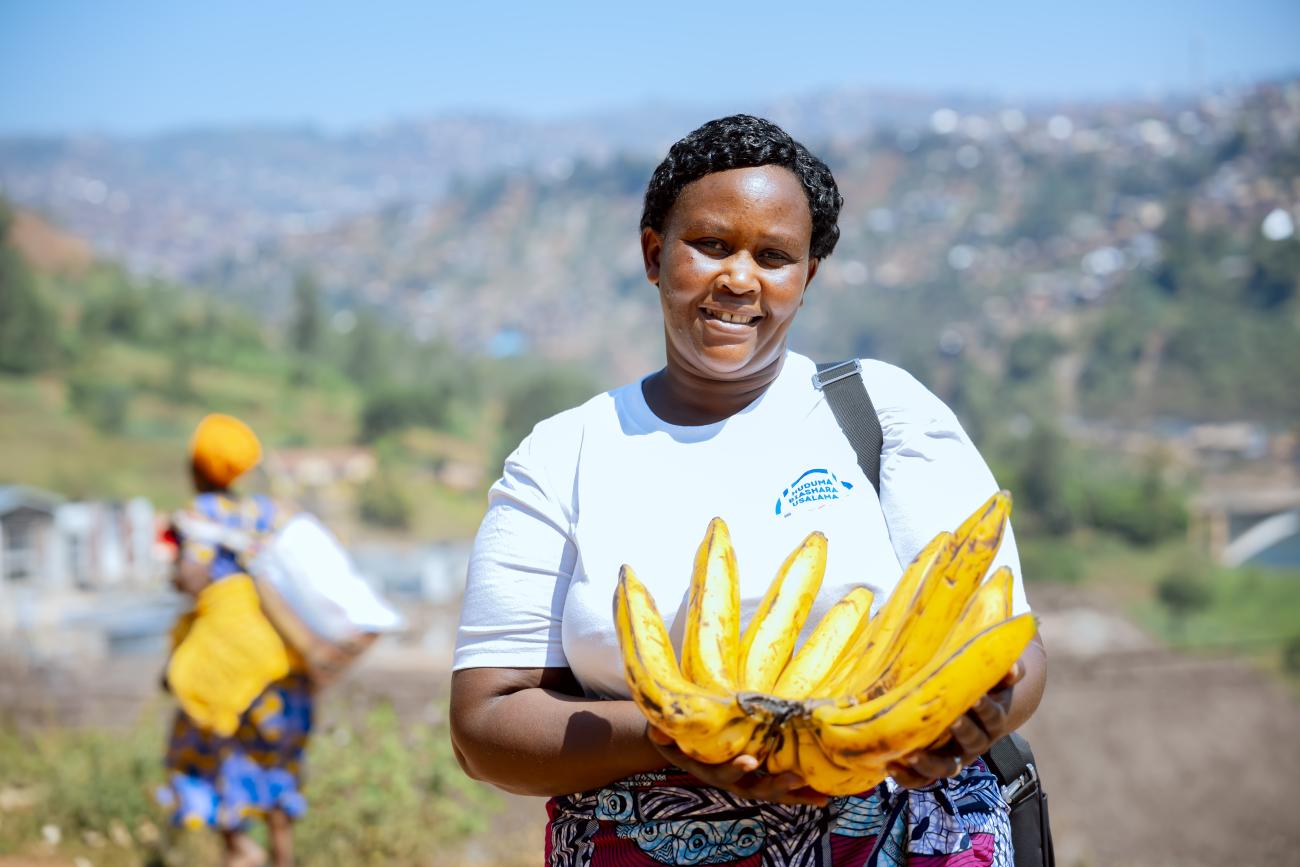A new joint initiative called Amplifying Digital Opportunities in Cross-Border Trade, virtually launched on October 11, is set to economically empower Rwanda’s small-scale cross-border traders, particularly women, youth, and persons with disabilities, through digital inclusion and regional integration. The programme is supported by contributions from the European Union and the Government of Spain under the United Nations SDG Digital Transformation Funding Round, and implemented by Participating United Nations Organizations (PUNOs) involving the International Trade Centre (ITC) as lead implementing agency, the International Organization for Migration (IOM), the United Nations Capital Development Fund (UNCDF), the United Nations Conference on Trade and Development (UNCTAD) and the UN Resident Coordinator’s Office (RCO), which plays an oversight and coordination role, ensuring the delivery of a unified 'One UN' approach.
“While developing good policies is essential, it is key that those policies be adapted and translated into effective services. Rwanda has already demonstrated that digital transformation can be fast-tracked, and this programme builds on that progress, empowering thousands of small-scale traders to access new markets and services through user-centric, digital solutions” said Ms. Ndèye Aissatou Masseck Ndiaye, Resident Coordinator ad interim during the virtual launch of the Joint Programme.
The new programme is a key component of the UN Joint SDG Fund’s Digital High-Impact Track designed to harness digital innovation, data analytics, and emerging technologies to drive sustainable development. By leveraging these tools, the programme aims to maximize its impact, providing small-scale cross-border traders access to digital platforms, financial services, and new markets, to improve their livelihoods and promoting inclusive economic growth.
With women representing over 70% of small-scale cross-border traders, the programme places a strong emphasis on gender equality and on empowering female traders as agents of social and economic transformation. It focuses on dismantling barriers that hinder women’s participation in digital trade, providing them with access to digital tools, financial literacy training, and market opportunities. By prioritizing gender-sensitive, digital policy reforms and digitally empowering cross-border traders, the Amplifying Digital Opportunities in Cross-Border Trade programme aligns with Rwanda’s National Strategy for Transformation (NST-I and II), SMART Rwanda Master Plan and Vision 2050.
The ADO-CBT programme also directly contributes to the African Continental Free Trade Agreement (AfCFTA) and the Landlocked Developing Countries (LLDC) Agenda, advancing Rwanda’s integration into regional markets. Through enhanced digital infrastructure and policy harmonization, the initiative promotes smoother cross-border trade, improved logistics, and greater economic cooperation between Rwanda and its neighbours.
At the launch the European Union highlights the importance of supporting digital transformation efforts in the Great Lakes Region.
“We really are in the best possible position to achieve this goal in Rwanda – which has already emerged as a regional, and indeed, global leader in the field of intra-regional trade and migration policies, and which has already laid out clear plans to accelerate its own digital transformation journey” EU Head of Cooperation in Rwanda, Michela Tomasella, noted.
By investing in digital solutions, the ADO-CBT programme aligns with global development objectives, contributing to Sustainable Development Goals on gender equality, decent work and economic growth, industry innovation, reduced inequalities, and partnerships for the goals.




